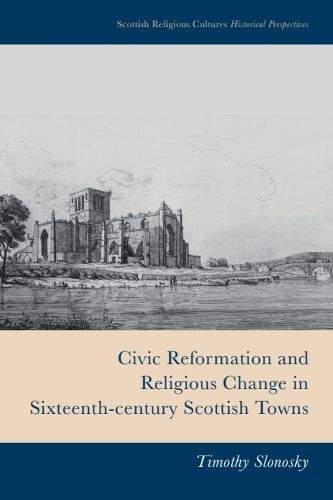Readings Newsletter
Become a Readings Member to make your shopping experience even easier.
Sign in or sign up for free!
You’re not far away from qualifying for FREE standard shipping within Australia
You’ve qualified for FREE standard shipping within Australia
The cart is loading…






Civic Reformation and Religious Change in Sixteenth-Century Scottish Towns demonstrates the crucial role of Scotland's townspeople in the dramatic Protestant Reformation of 1560. It shows that Scottish Protestants were much more successful than their counterparts in France and the Netherlands at introducing religious change because they had the acquiescence of urban populations. As town councils controlled critical aspects of civic religion, their explicit cooperation was vital to ensuring that the reforms introduced at the national level by the military and political victory of the Protestants were actually implemented. Focusing on the towns of Dundee, Stirling and Haddington, this book argues that the councillors and inhabitants gave this support because successive crises of plague, war and economic collapse shook their faith in the existing Catholic order and left them fearful of further conflict. As a result, the Protestants faced little popular opposition, and Scotland avoided the popular religious violence and division which occurred elsewhere in Europe.
$9.00 standard shipping within Australia
FREE standard shipping within Australia for orders over $100.00
Express & International shipping calculated at checkout
Civic Reformation and Religious Change in Sixteenth-Century Scottish Towns demonstrates the crucial role of Scotland's townspeople in the dramatic Protestant Reformation of 1560. It shows that Scottish Protestants were much more successful than their counterparts in France and the Netherlands at introducing religious change because they had the acquiescence of urban populations. As town councils controlled critical aspects of civic religion, their explicit cooperation was vital to ensuring that the reforms introduced at the national level by the military and political victory of the Protestants were actually implemented. Focusing on the towns of Dundee, Stirling and Haddington, this book argues that the councillors and inhabitants gave this support because successive crises of plague, war and economic collapse shook their faith in the existing Catholic order and left them fearful of further conflict. As a result, the Protestants faced little popular opposition, and Scotland avoided the popular religious violence and division which occurred elsewhere in Europe.